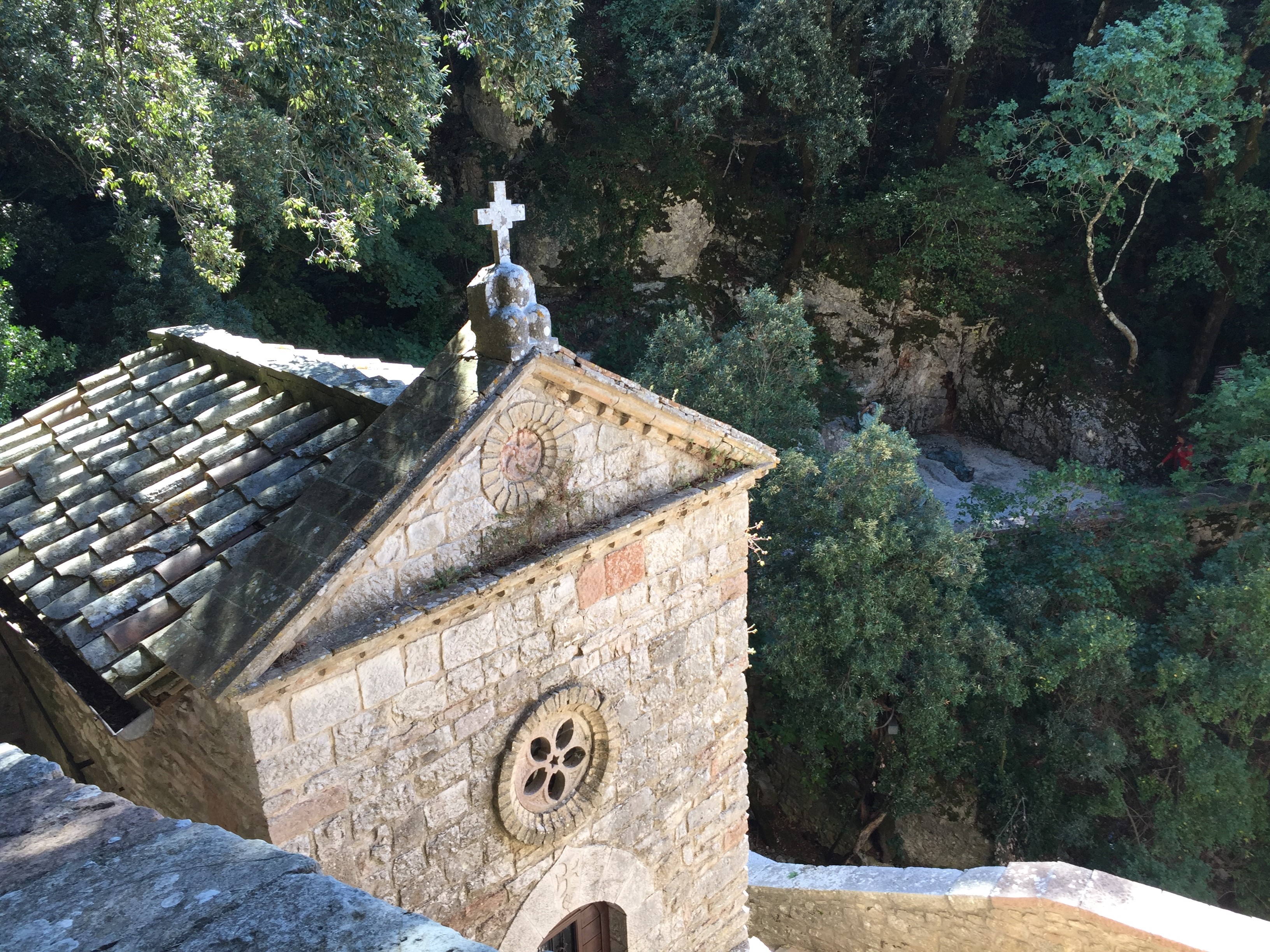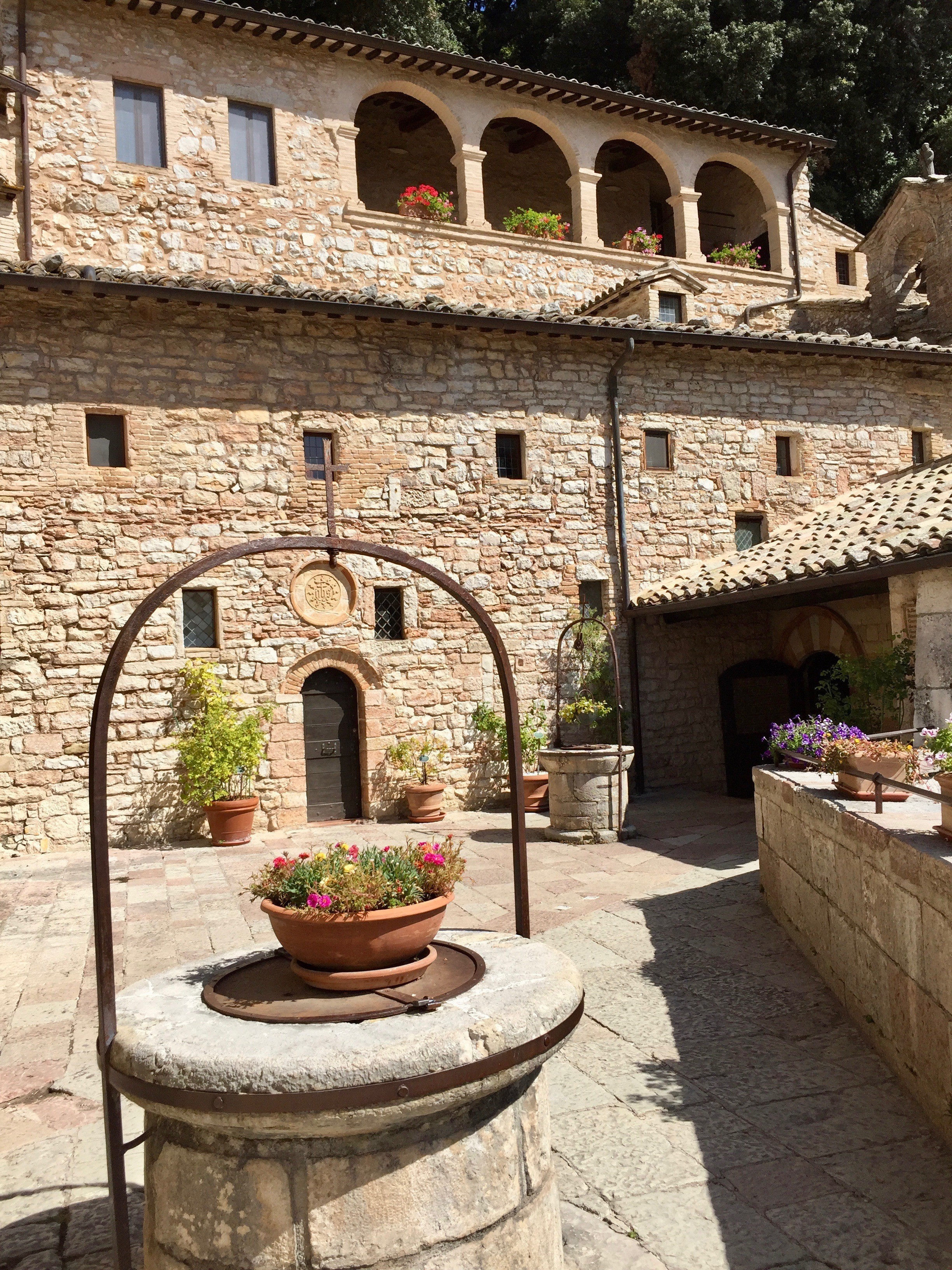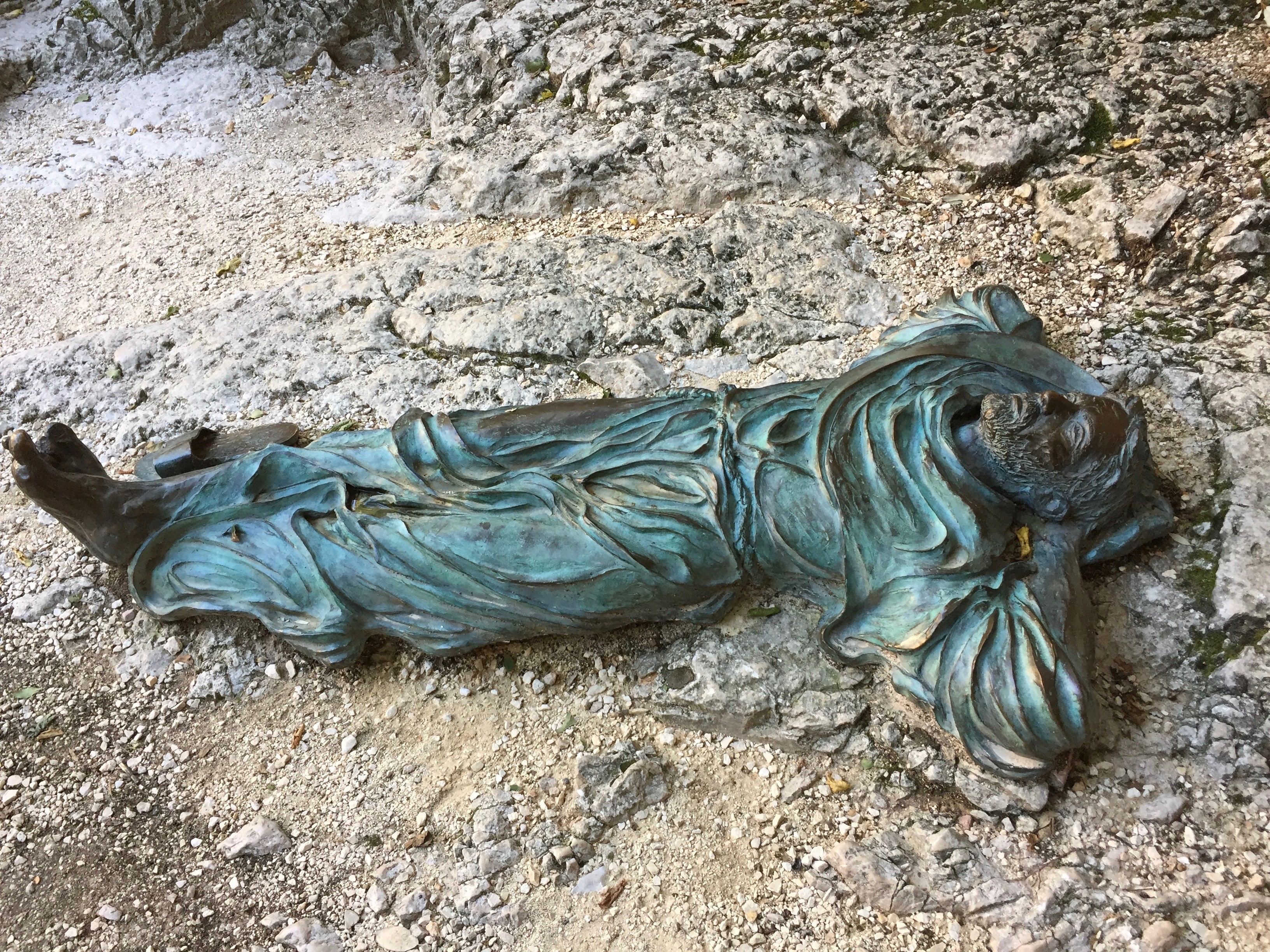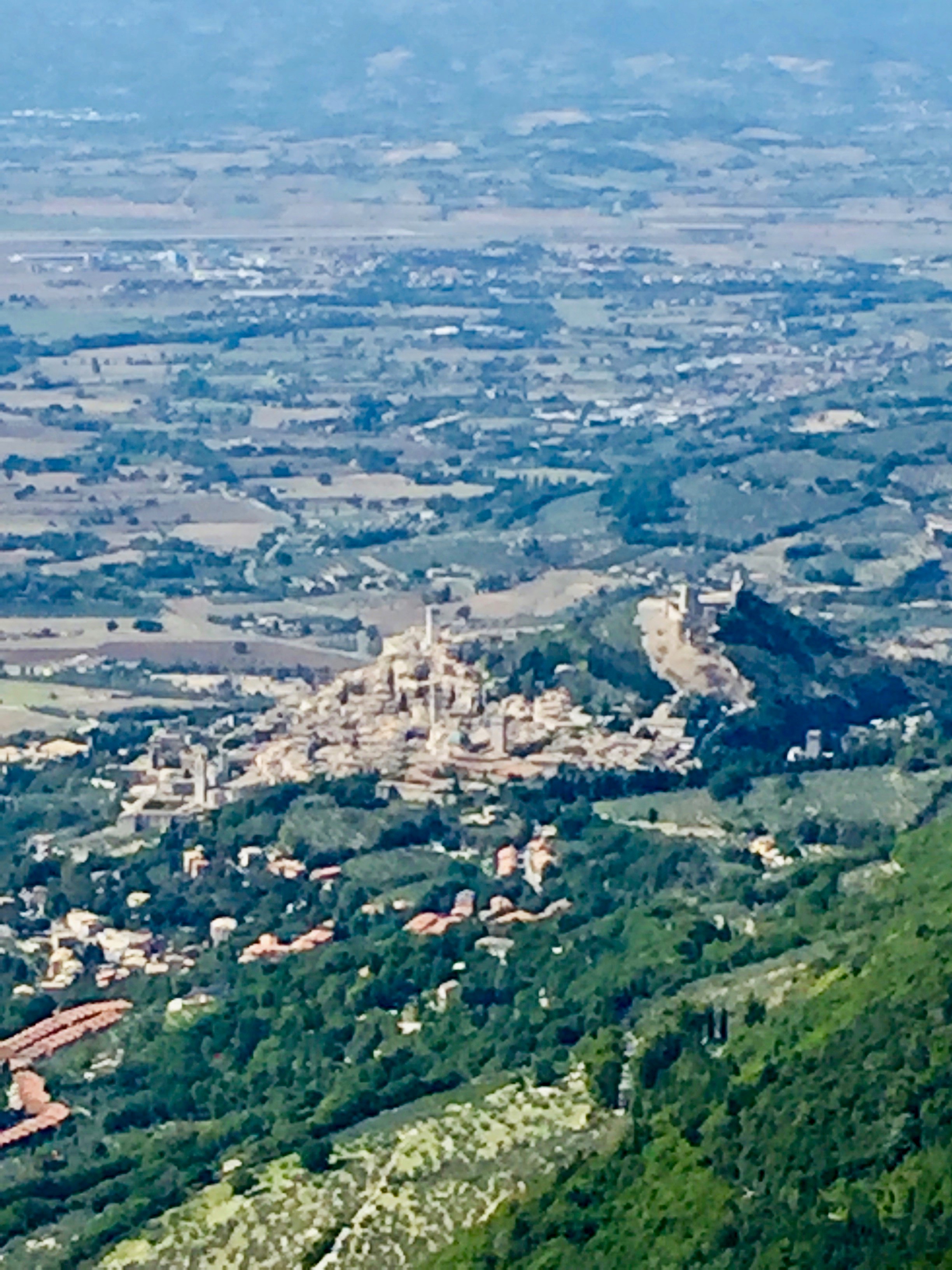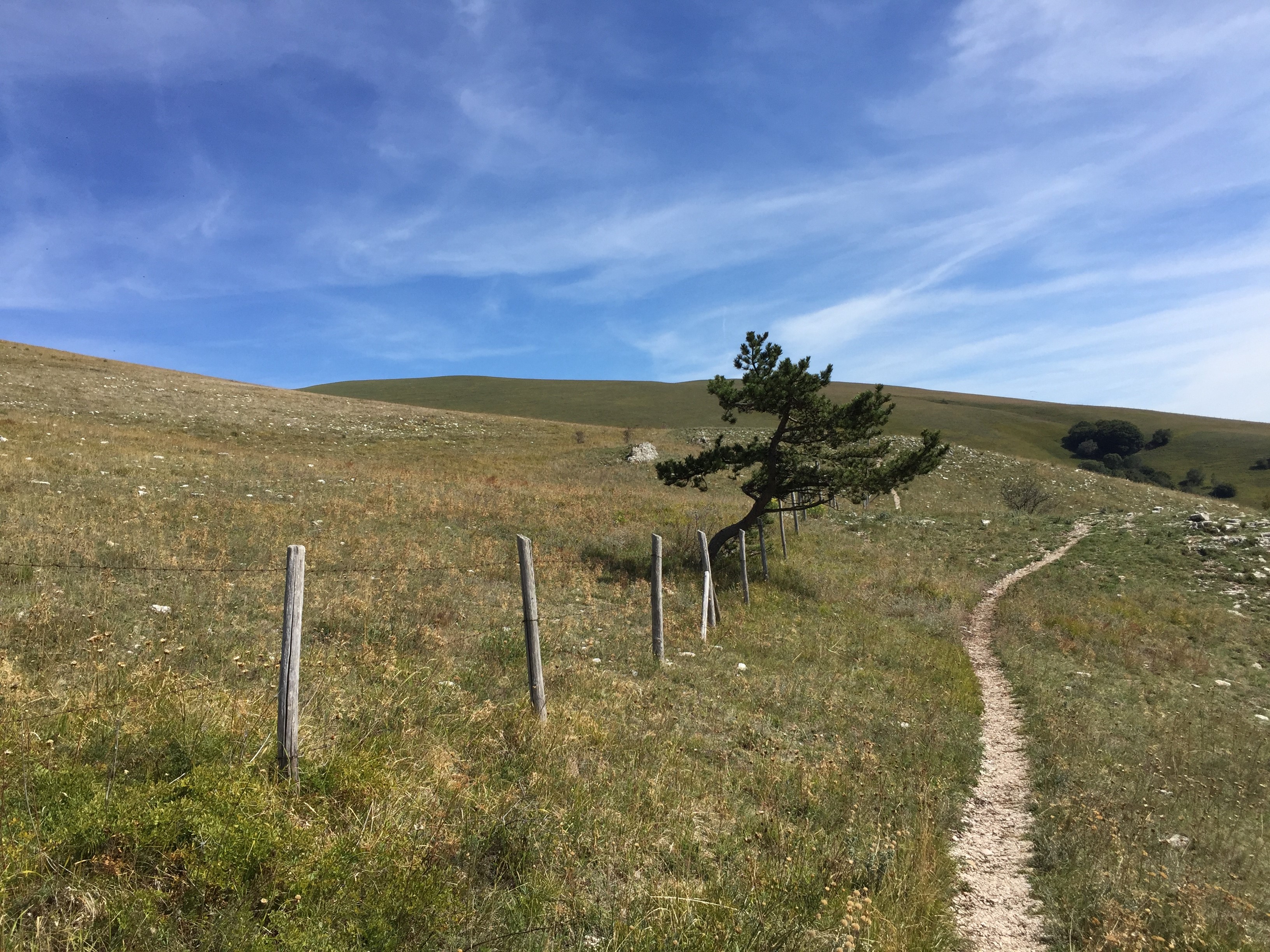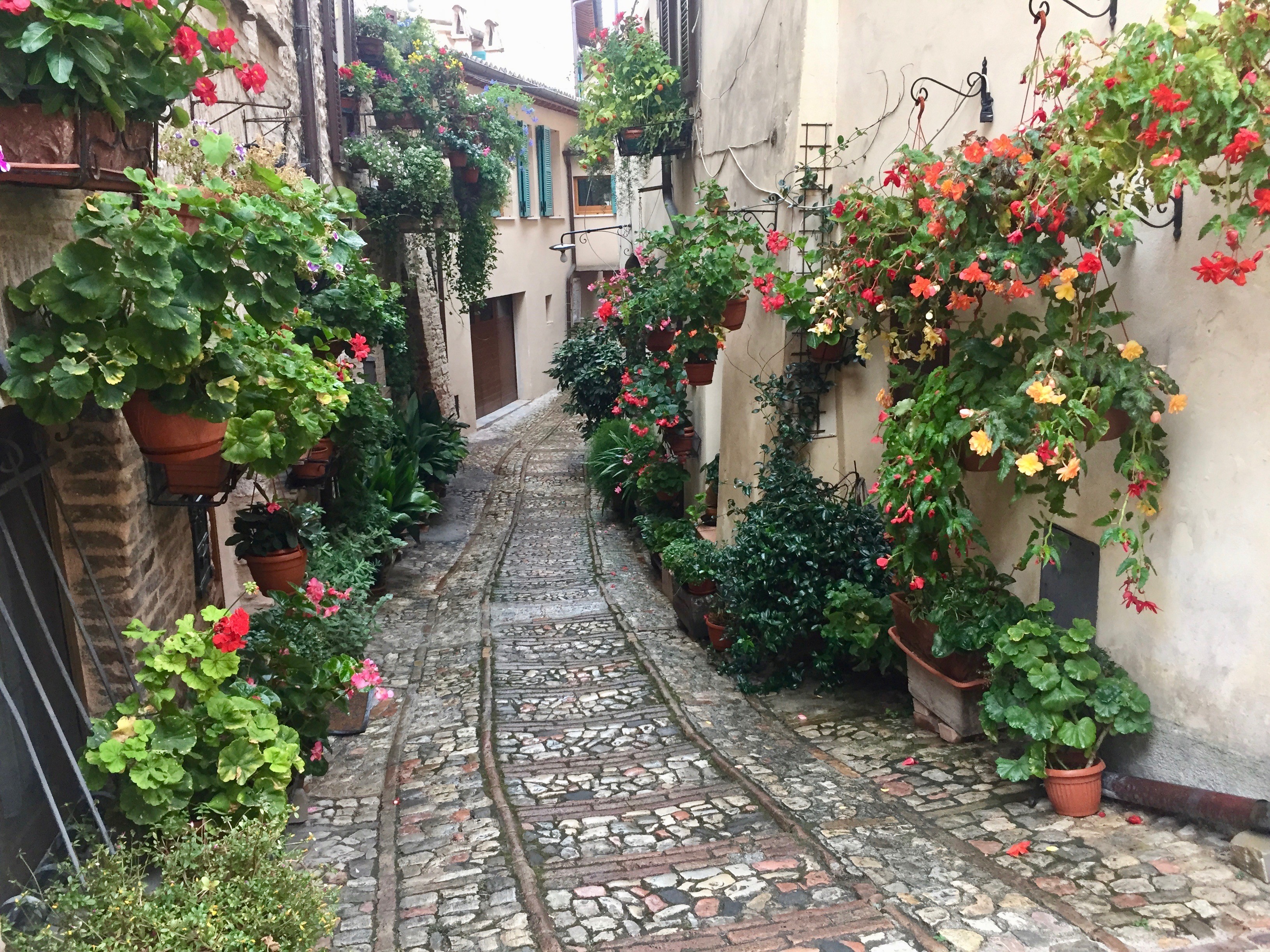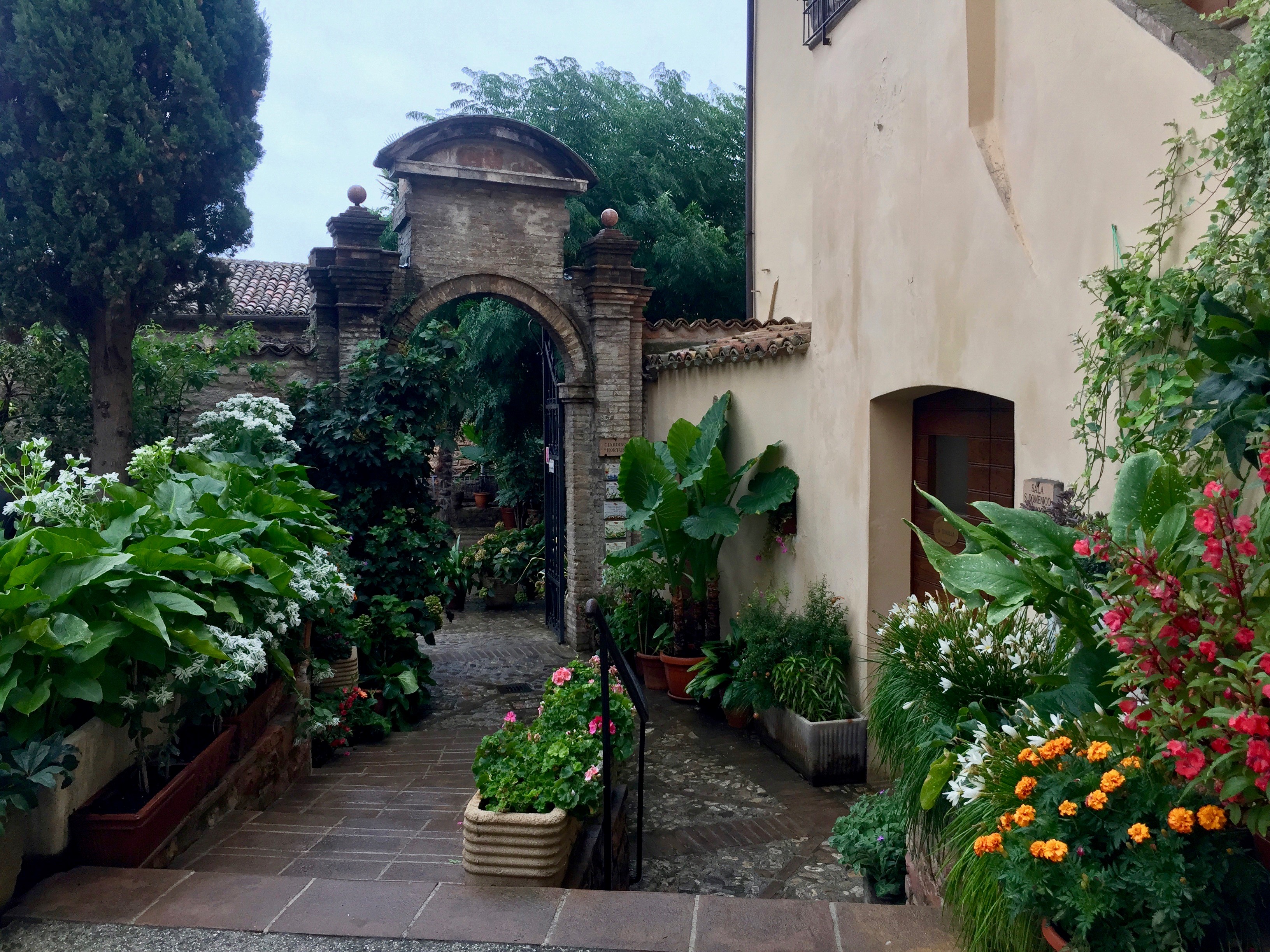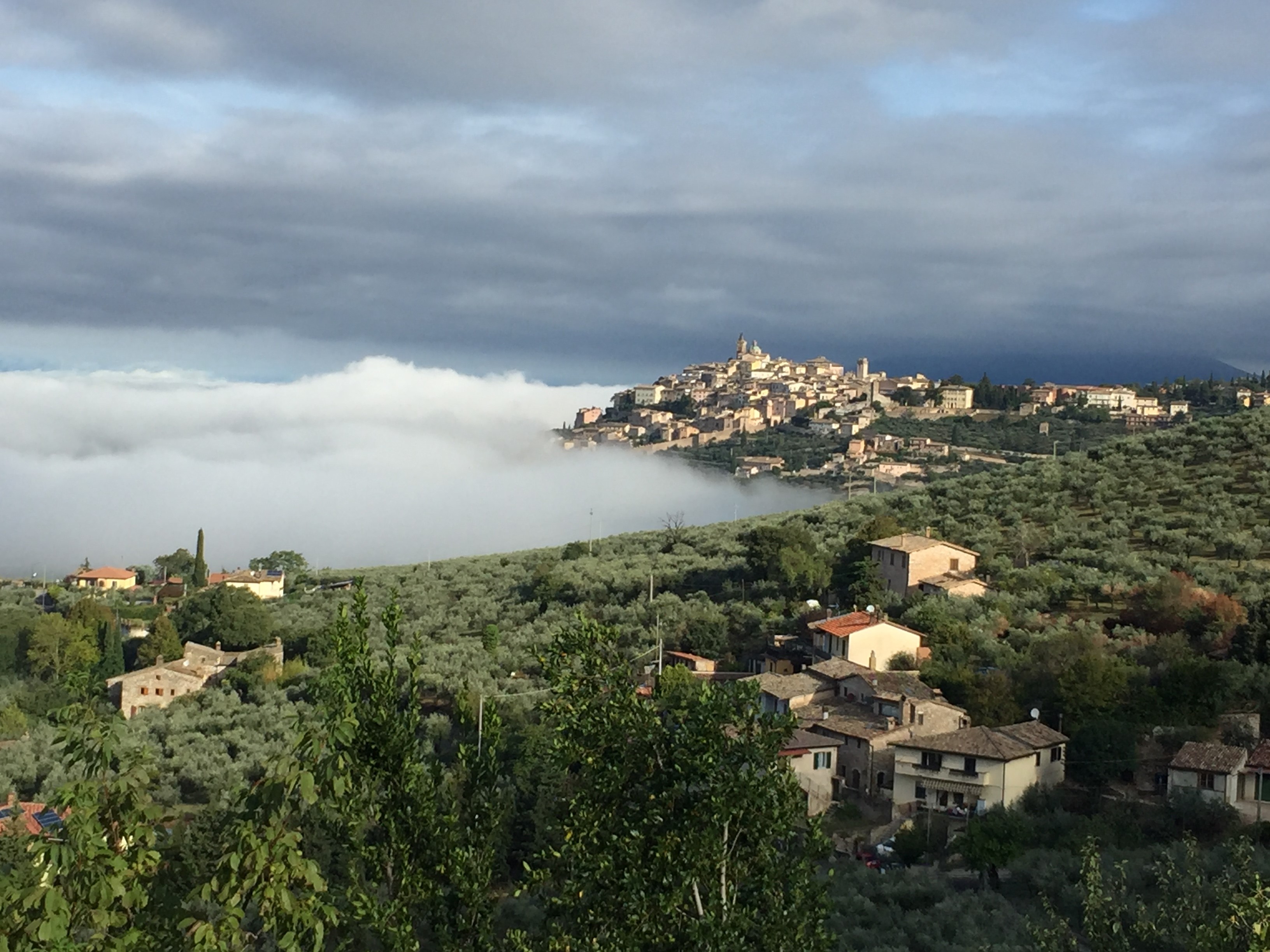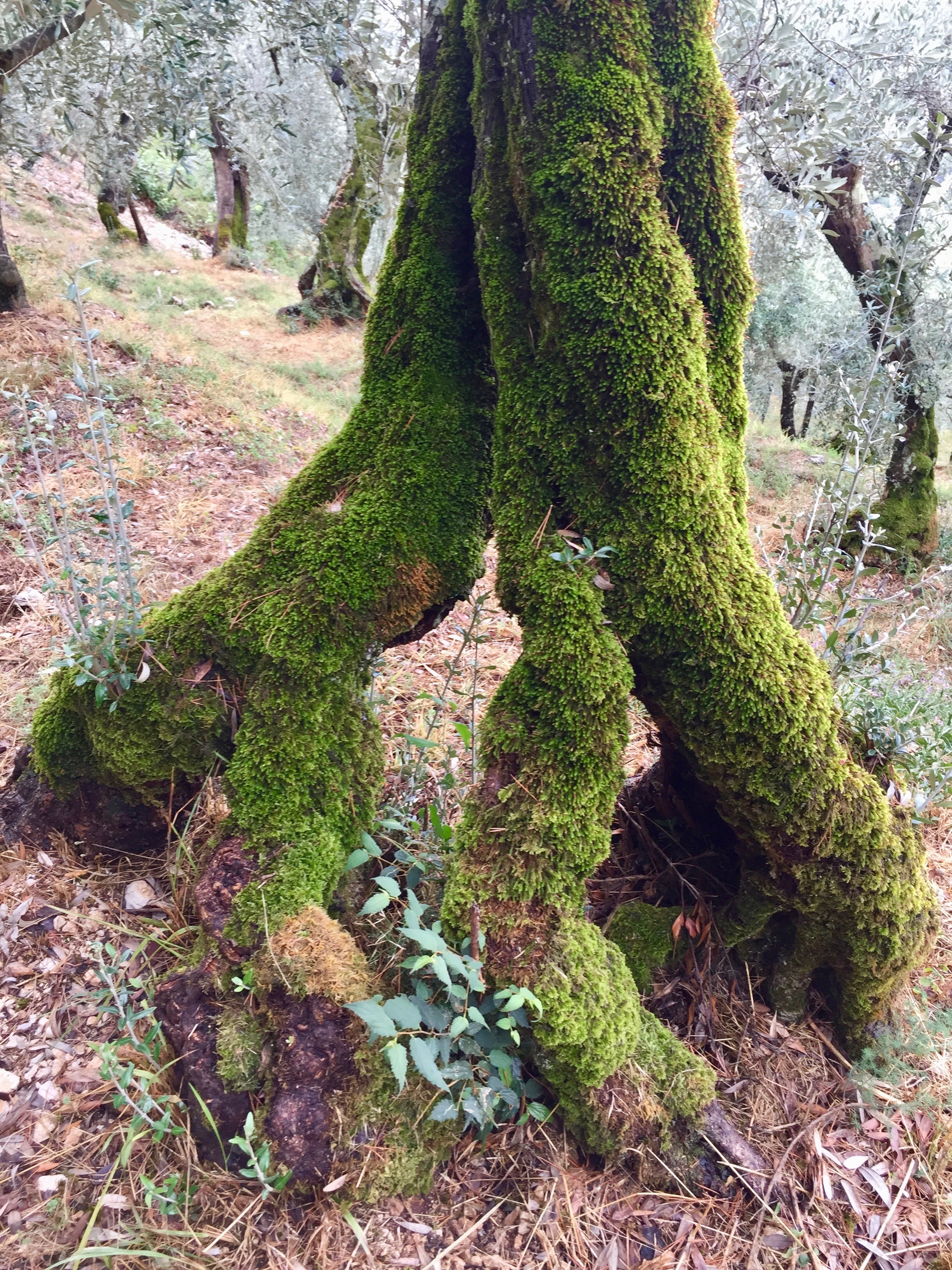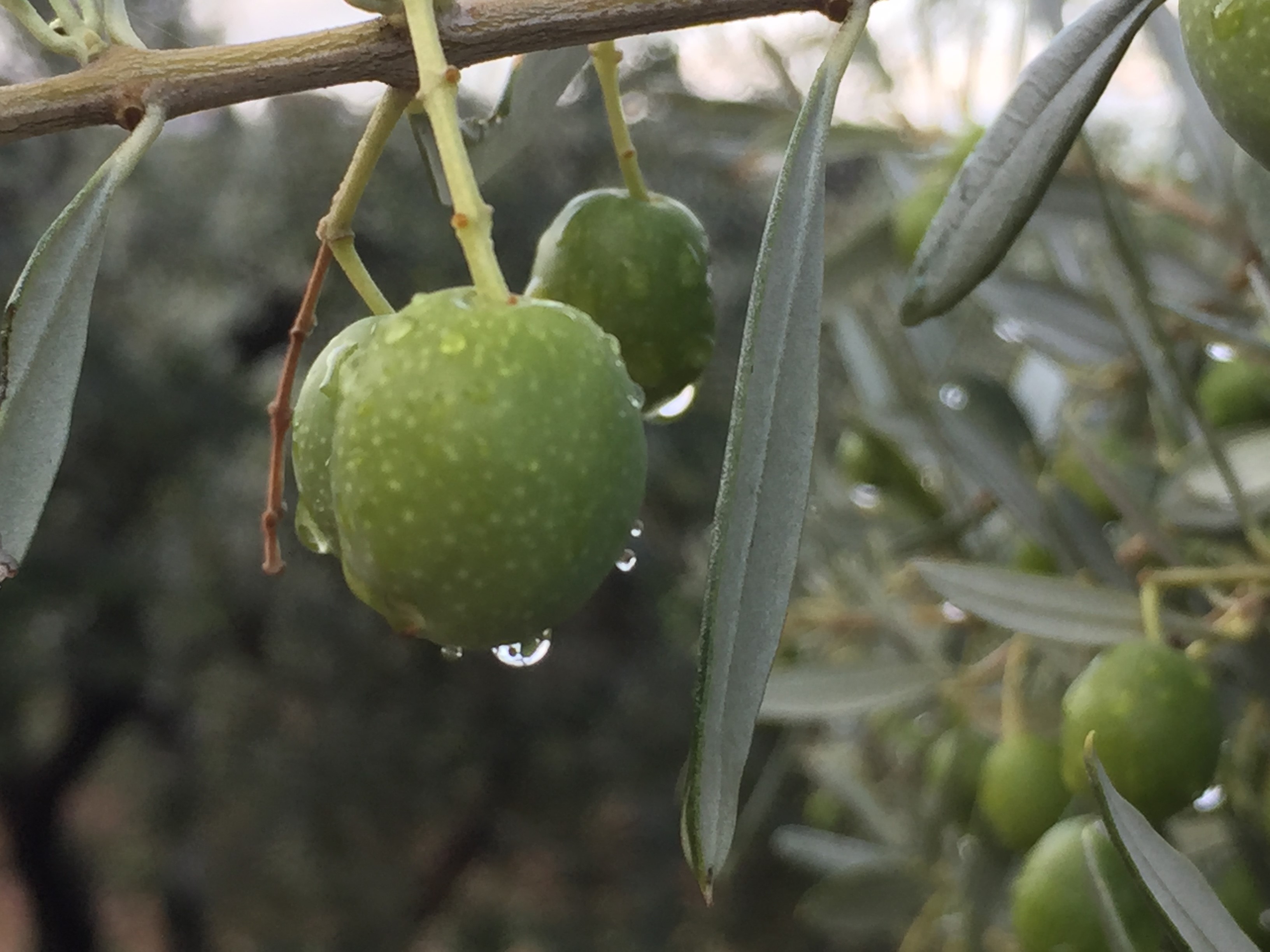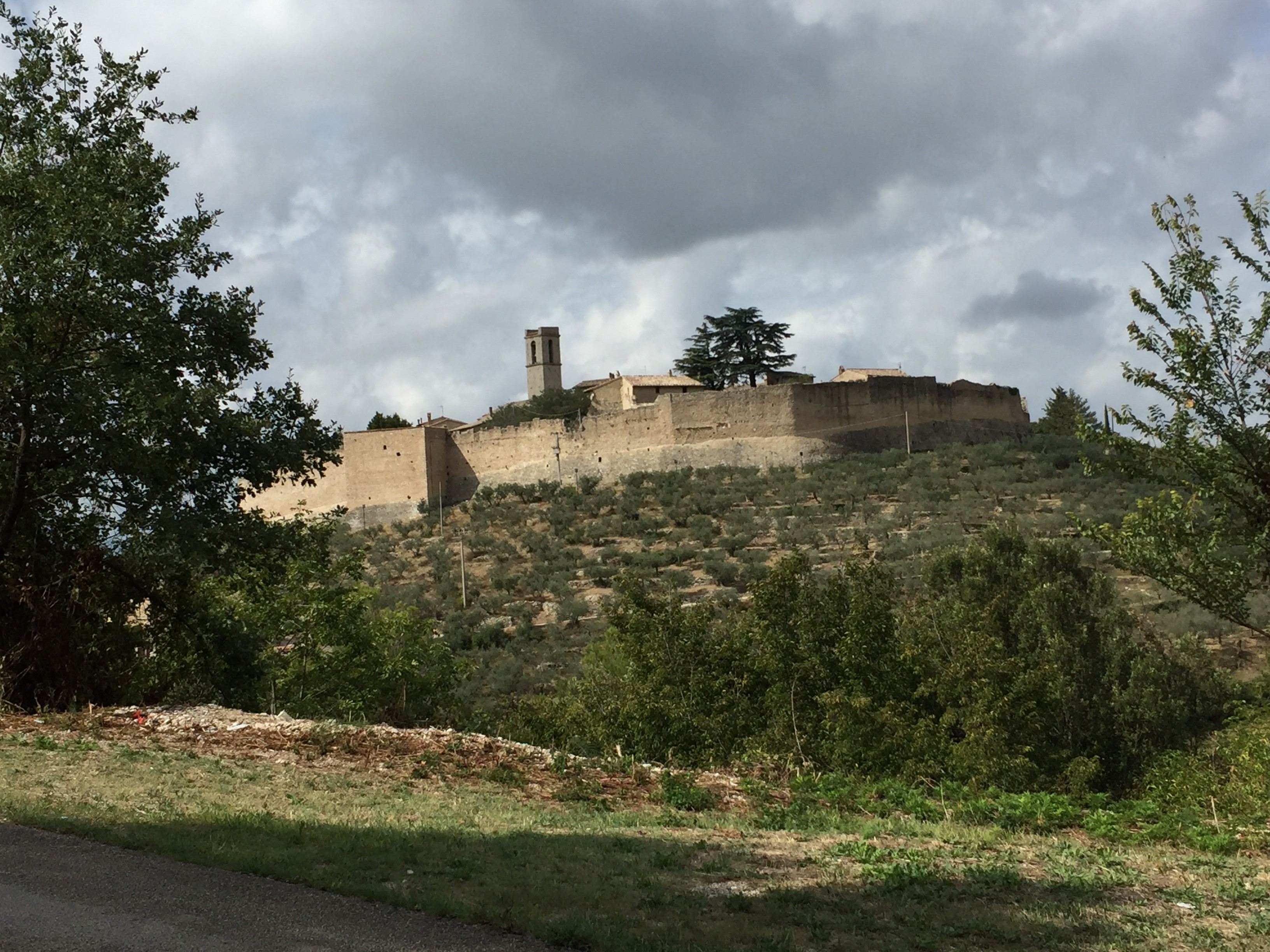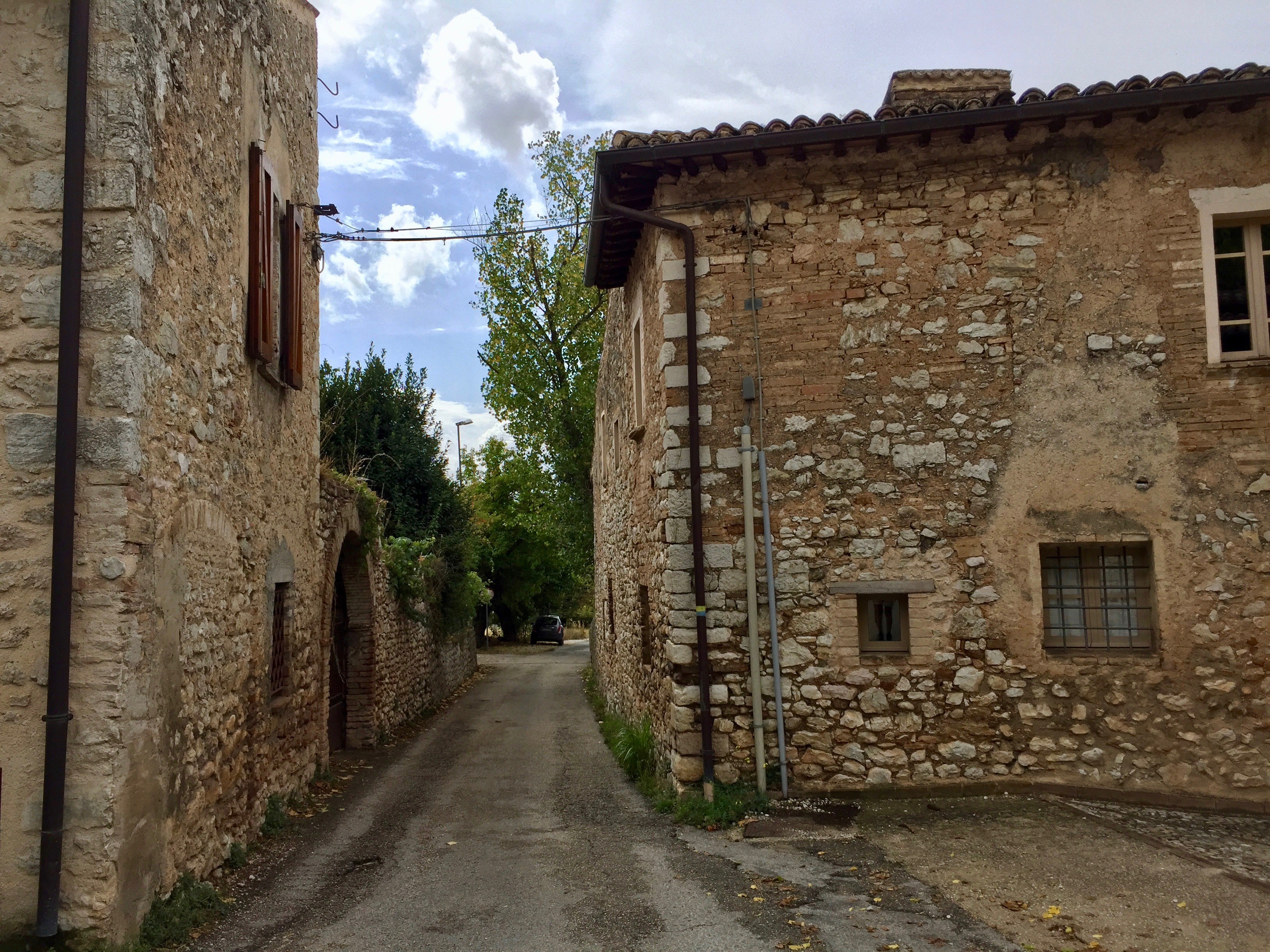(9)
Pilgrim as refugee
A pilgrim leaves the familiar behind and goes to places that are transient. On a pilgrimage, the pilgrim constantly arrives and leaves again. It is like the breath – breathing in and breathing out. In this sense, the pilgrim is a refugee – always moving.
When everything is constantly changing, where can the pilgrim find refuge? Suzuki Roshi compared the breath to a swinging door that moves when we inhale and exhale. He said “When your mind is pure and calm enough to follow this movement, there is nothing: no ‘I,’ no world, no mind nor body; just a swinging door.”
A pilgrimage is a journey to discover our vast awareness, the original nature. When unpleasant and difficult situations arise, it forces the pilgrim to maintain awareness. In this way, purification of body and mind happens organically.
Chapel of Eremi delle Carceri
Inner court of Eremo delle Carceri
I left Assisi through the Porta del Capuccini, the highest point of the city, and continued on a steep path up to the hermitage Eremo delle Carceri. Although I had been there before, I walked again through the woods, discovering caves and breathing in this wild, untamed nature. I especially love a statue of St. Francis lying on his back watching the night sky. In this posture, he expressed for me the state of mind Suzuki Roshi was talking about.
St. Francis looking up to the night sky
From the hermitage the path went up to the over 3000-foot high Monte Subasio. I was lucky that the weather was gorgeous.
View from the top of Monte Subasio down to Assisi
Monte Subasio
My goal for the day was Spello, a picturesque town I had also visited before. I was looking forward to staying there and had reserved a bed in the convent. The convent was farther away from the town than I had thought. There was only one entrance – a huge metal sliding gate. After ringing the doorbell, I was let in by an unfriendly person. The gate immediately closed behind me. I did not get any key to get out again and stood in a courtyard with some trees and a lot of cats. After waiting for a while, I was led through a cluttered room to my room, which hit me with the smell of cat urine. My aversion grew from minute to minute. What should I do? Should I accept my aversion and not be picky? It was late! Finally, I decided to look on booking.com for another place. I was successful and escaped. I still feel good about this decision. St. Francis would have stayed – but I am not a saint.
A street in Spello
A house in Spello
The next two days were beautiful. I passed the town Foligno and saw the Cathedral in front of which St. Francis had sold all his belongings.
I spent the next night in Trevi. The town was as picturesque as Spello.
Morning view of Trevi
Powerful thunderstorms swept over the country during the night and left their marks on olive trees full of little water pearls. I was in awe of the olive trees whose trunks were overgrown with moss sparkling in their freshness. The countryside between Trevi and Spoleto seemed to be one big olive orchard.
Olive tree with moss covered roots
At one point, the yellow Tau pointed to an asphalt road. However, another marker showed the way through olive orchards. Like so often in the past, the different ways join together somewhere and I decided to walk the more beautiful way in nature. After walking for quite a while, no yellow marker showed up. Several thunderstorms formed in the huge valley and I decided to study my tiny map in the book. This time, I made the wrong choice! I would have needed an additional day to reach Spoleto. What should I do? Should I return or continue and hope to find a place where I can stay overnight?
In this moment of total uncertainty, with several approaching thunderstorms over my head, I suddenly saw a public bus stopped in the middle of a tiny road in between two houses. It showed SPOLETO in big, capital letters. The bus driver was chatting with a man on the street. I could not believe it! I rushed to the bus! Not a single person was sitting in it! To be sure, I asked the driver if he was going to Spoleto. He was! Rain was hitting the windows of the bus when we travel ed from village to village. Not one other person ever entered the bus. I was so grateful that I did not have to walk in thunderstorms not knowing where to sleep
On a street like this, the bus to Spoleto appeared
During quarantine, the challenge for me is to remember that I am a refugee living in a transient world. What pretends to be a safe haven – family, friends, home, books, and bank account and innumerable other things, all those things do not provide ultimate safety. I believe the only true safety is awareness itself – this vast, boundless, limitless space from where everything comes into existence in its justness. Every difficulty helps me to wake up to this reality. By keeping this intention of waking up, not a moment is wasted. Especially now, when life so much slowed down, I have the possibility to train my mind during zazen and throughout the day. Maybe a poem by Tongshan is better expressing it than my words.
The blue mountain is the father of the white cloud.
The white cloud is the son of the blue mountain.
All day long they depend on each other, without being dependent on each other.
The white cloud is always the white cloud.
The blue mountain is always the blue mountain.
-Zen Master Dongshan Lianjie

